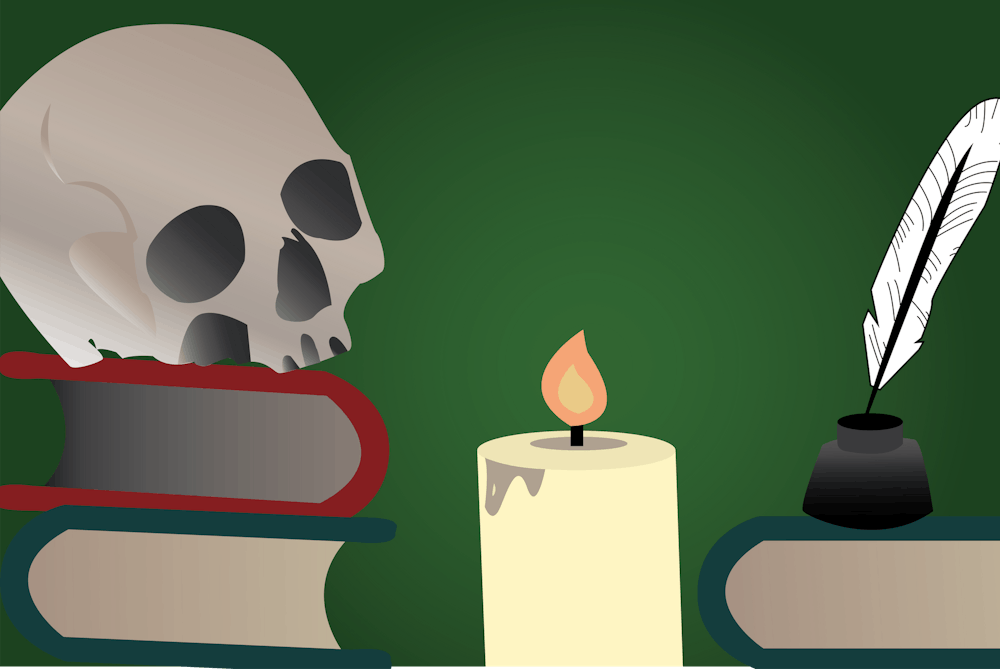Many see poetry as nothing more than a few lines to be scrutinized in a classroom or words in a dusty book that is rarely opened.
National Book Award for Poetry recipient and University of South Carolina English professor Nikky Finney, however, sees poetry as having the power to open spaces, conversation and understanding. It is a poet laureate who is tasked with communicating this power of poetry and bringing it to life for the citizenry, she said.
South Carolina has been without one for the past four years.
The position of State Poet Laureate was officially instituted in South Carolina in 1934. The governor is tasked with appointing someone from the nominees put forth by the Art Commission.
The state has had six poet laureates since, as the position was for life, until a resolution passed in 2018 created four-year terms with a two-term limit. Most recently, Marjory Wentworth served the state as poet laureate from 2003 until she resigned in 2020.
Aside from reciting an original poem at each gubernatorial inauguration, the position is largely open to interpretation by each laureate, Wentworth said.
“Your responsibilities are ultimately two-fold. One is to increase the venues and opportunities for people to hear poetry and read poetry and also to sort of serve your writing community as well," Wentworth said. "But it’s really not defined.”
The flexibility of the position allows each laureate to uniquely approach the task of bringing poetry alive for their communities, Finney said.
“There’s no one way to do it," Finney said. "The real important thing is to make sure you are bringing poetry into certain moments of life that a community has where it’s a real thing — where it’s not just something sitting up on a shelf that you pull down once a year.”
The position has a unique legacy as no other form of art, such as theater, music or dance is represented by a laureate. Thus the poet laureate becomes a spokesperson for the entire arts community, Wentworth said.
Near the end of Wentworth's tenure, cities and regions across South Carolina began establishing their own poet laureate positions. University of South Carolina professor of poetry Ed Madden became the first of South Carolina’s city laureates when he was appointed as the City of Columbia’s Poet Laureate in 2015. Edgefield, Charleston, Rock Hill and others soon followed.
“I really thought that the poet laureate is about providing that voice; a voice that’s about our history, a voice that’s about who we are in the present, but also a voice about who we could be in the future,” Madden said.

Over the past four years without a state laureate, Madden finds that South Carolina has missed precisely that.
“It’s a glaring failure on the part of the governor not to have appointed someone," Madden said. "It says something about the extent to which his administration values the arts. It says something to the extent to which they understand that art and creativity are also one of the essential voices by which we define ourselves.”
McMaster did not respond to a request for comment.
Despite public pressure, including a rally at the Statehouse calling for the governor to take action, Governor Henry McMaster has yet to appoint someone to the position despite the Arts Commission naming three finalists years ago, said Current poet laureate for Columbia, Jennifer Bartell Boykin.
Bartell Boykin said she sees the Governor’s silence as disrespectful to the Arts Commission that already called for applications and named three finalists, as well as to those who applied and the state as a whole.
After going through the transition post-COVID without the voice of a poet laureate, Bartell Boykin sees South Carolina as once again missing out amid a pivotal time for the state.
“There's so many things happening in education, with banned books ... with the AP African American Studies class not getting picked up … (it) would be good to have that person to speak into those issues, to go onto those communities," Bartell Boykin said. "The fact that we don't have a state poet laureate is in line with the book bans and with this total disregard for literacy and intellectual freedom.”
Poets have a unique lens through which they view political issues and have a powerful way of communicating that, Finney said.
“I think that the arts and poetry in specific teaches us how we can think differently about a subject and still be connected to each other as human beings,” Finney said.
Laureates are frequently appointed by a governor they did not vote for, Wentworth said, which adds a new perspective to the conversation.
“It takes courage to even think that this person might write a poem that you might not agree with as Governor, but you still think it needs to be in the air. That’s what courage is," Finney said.
While Finney praised the hard work of city laureates across the state, many rural communities are left without an ambassador for poetry.
Someone in the state position would be able to reach those communities as well as amplify the voices of city and regional laureates Bartell Boykin said.
Since McMaster is bound by law to appoint a poet laureate, his failure to do so reveals a lack of concern for the arts, Bartell Boykin said. If McMaster does not want to appoint someone, he should change the law to give someone else that responsibility, such as the Arts Commission or another arts organization, she said.
Finney said being selected by the head of the state, the governor, to an artistic position gives it a validity otherwise lacking.
“We have so much work to do regarding language and poetry and the arts," Finney said. "Why not have that top position and also (city laureate positions)? I think that that would change the very fabric of South Carolina if we had more art-designated individuals in positions of power and presence.”

